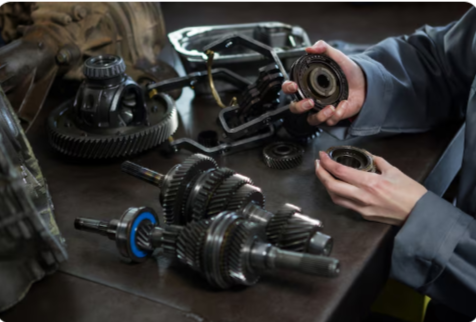Piston rings are a fundamental component in a wide array of mechanical systems, providing a crucial seal that ensures efficient operation.
When faced with extreme conditions, such as high temperatures, corrosive environments, and demanding operational cycles, the choice of material becomes a primary factor in a system’s reliability and longevity.
Stainless steel has emerged as a top-tier material for this purpose, offering a unique combination of features that set it apart from other options. Understanding these key features is essential for engineers and manufacturers who seek to optimize performance and durability in their machinery.
Exceptional Corrosion Resistance
One of the most defining characteristics of stainless steel is its remarkable resistance to corrosion. This is particularly important for applications where the rings are exposed to moisture, chemicals, or acidic gases.
The presence of a chromium oxide layer on the surface of stainless steel acts as a passive film, protecting the underlying metal from rust and degradation.
This feature ensures that stainless steel piston rings maintain their structural integrity and sealing effectiveness over extended periods, reducing the risk of premature failure and the need for frequent replacements.
Superior Strength and Durability
Stainless steel is known for its high tensile strength and durability, making it an excellent material for components that endure high levels of stress and friction.
In applications with high-pressure and high-RPM environments, such as turbochargers or high-performance engines, the piston rings are subjected to constant wear and tear.
The inherent toughness of stainless steel allows these rings to withstand these forces without deforming or losing their sealing capabilities. This durability leads to a longer service life and greater reliability of the entire system.
Excellent Performance at High Temperatures
Many industrial applications, including die-casting machines and certain engines, operate at extremely high temperatures. Standard materials can soften or lose their mechanical properties under such thermal stress, leading to a compromised seal.
Stainless steel piston rings are specifically engineered to perform effectively in these high-temperature conditions.
They are able to maintain their hardness and spring tension, ensuring a consistent and tight seal even when subjected to intense heat, which is vital for preventing fluid leaks and maintaining system efficiency.
Versatility and Customization
The manufacturing process for stainless steel allows for a high degree of versatility and customization. Stainless steel piston rings can be produced in a wide variety of sizes, from small to large diameters, and can be designed with different joint configurations to suit specific applications.
This adaptability is critical for industries that use a diverse range of machinery. Manufacturers can order rings tailored to precise dimensional requirements, ensuring an optimal fit and maximizing performance in any given system.
Low Friction and Wear Properties
While a secure seal is the primary function, minimizing friction is also a key consideration. Stainless steel can be manufactured with a smooth surface finish and, in some cases, with coatings that further reduce friction.
This feature not only improves the energy efficiency of the system but also minimizes wear on the cylinder walls. Reduced friction and wear extend the life of both the rings and the surrounding components, lowering overall operational costs and maintenance efforts.

